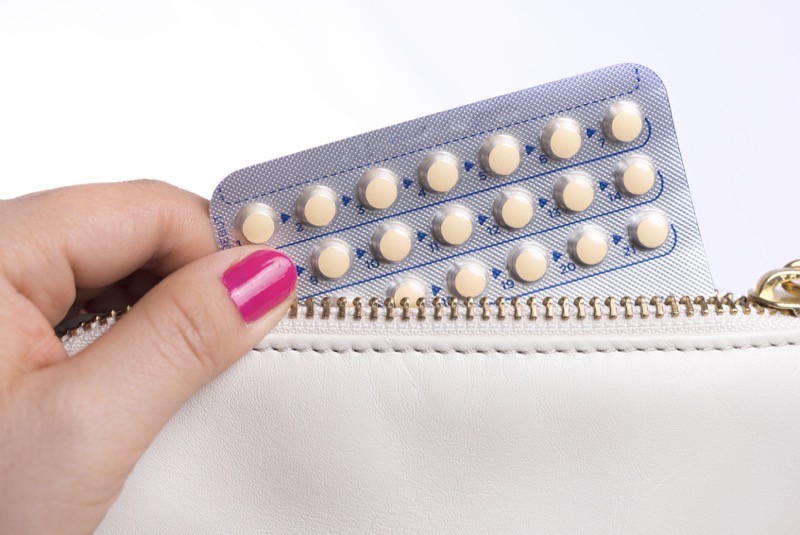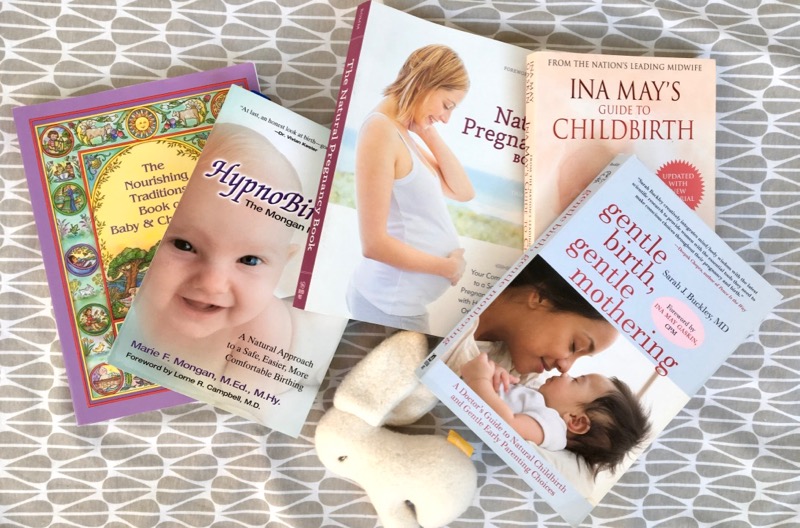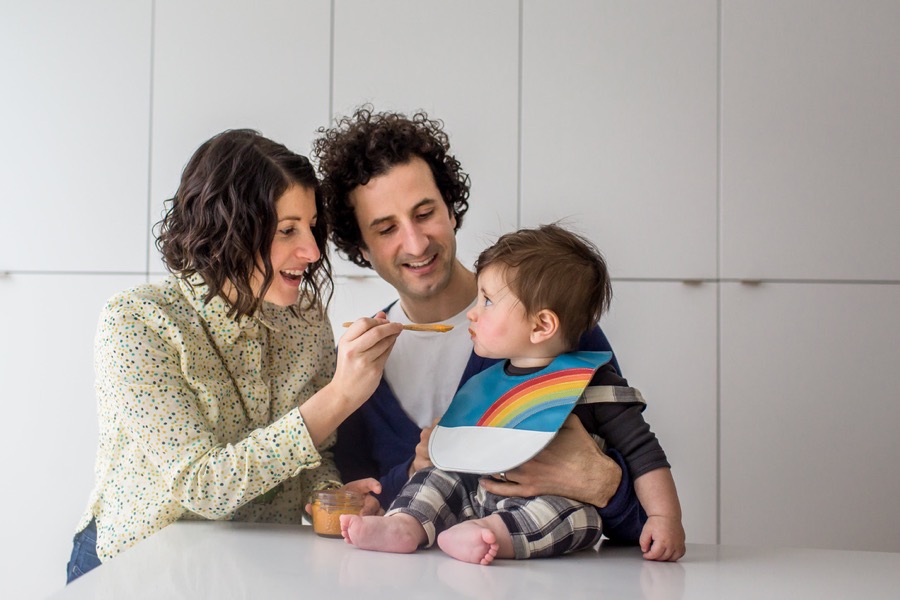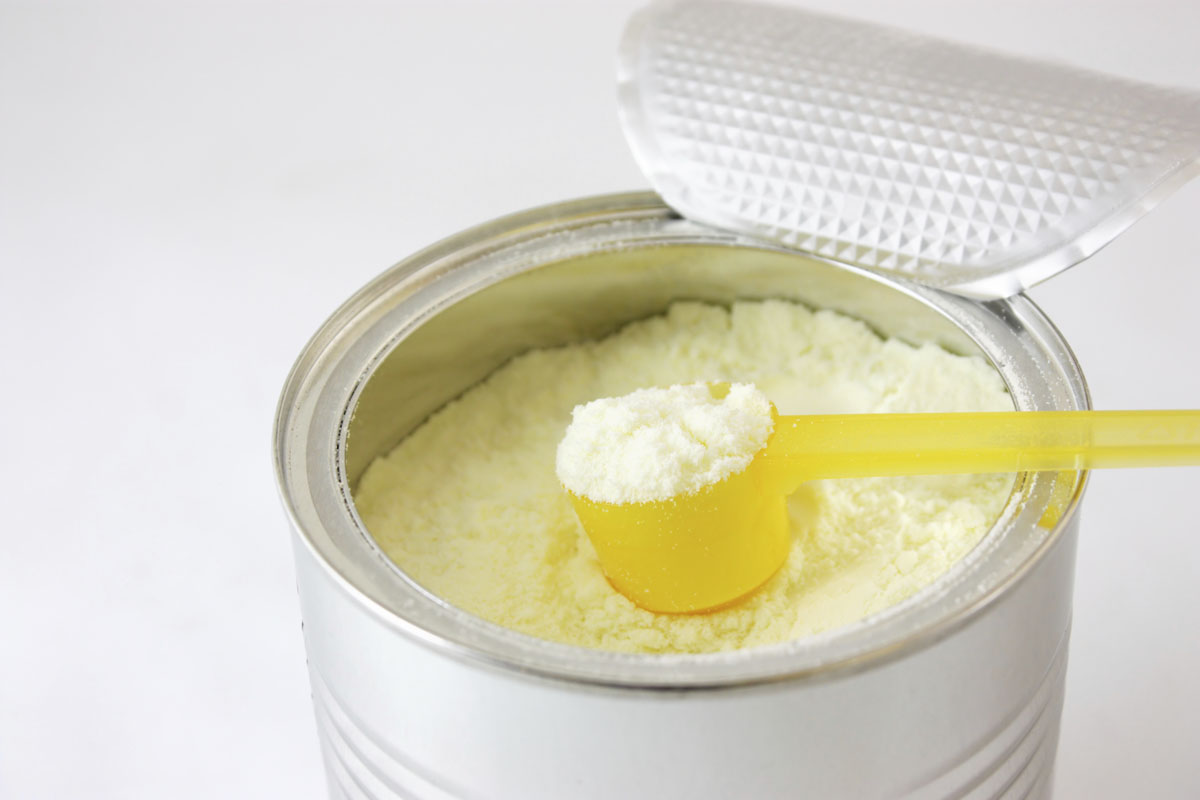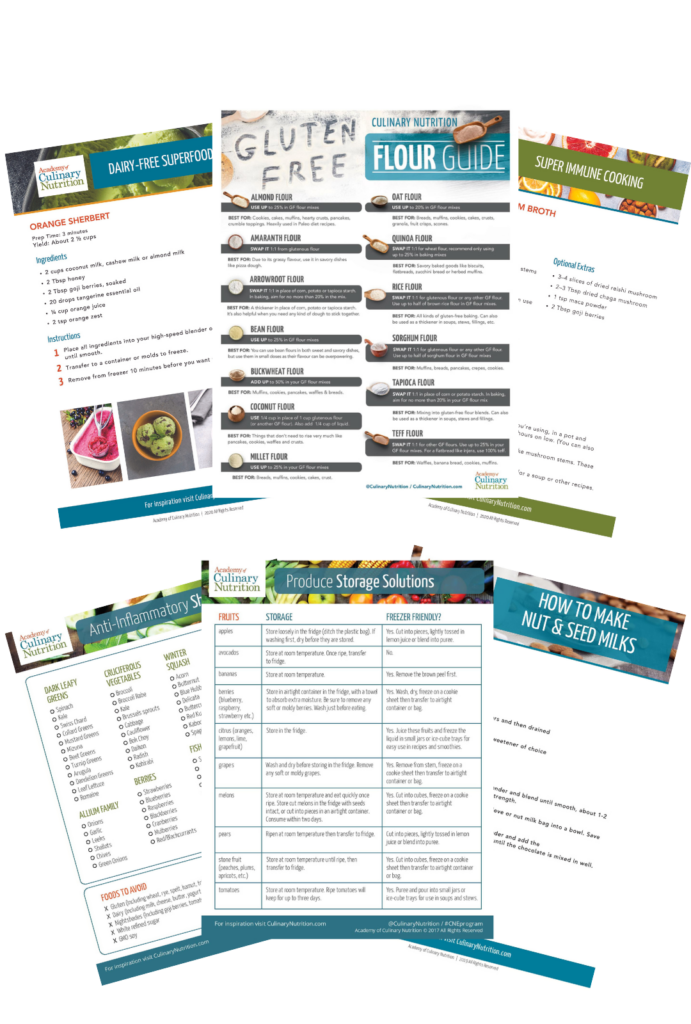Preconception Planning: When To Start, What To Do, and Why It Matters

So, you want to have a baby! How exciting and scary and wild all of it rolled into one. Besides the obvious fun bit that goes into baby making, how much thought have you given to what else it takes to make that happen? Yes, you have to be off any birth control and you need to do the deed around your ovulation window, but there is a whole lot more to consider these days than just doing it. Preconception planning is too rarely considered, and we’ve become a culture that is quick to turn to medical intervention with IVF, and other hormonal medications. What if we could aim to avoid all of that with a little preconception planning?
As I learned, there are no guarantees when it comes to bringing humans into the world. There is a time and a place and sometimes a necessity for medical intervention when it comes to fertility and pregnancy. However, that doesn’t get you off the hook with preconception planning and cleaning things up to set up the womb to be a happy, healthy place to grow your little human. No matter how you become pregnant, working towards getting your body into an optimal state to support a healthy pregnancy is vitally important. There are no sure things when it comes to conception, but every effort counts.
The Rise In Infertility
I would be remiss not to mention the dramatic rise in infertility that we’ve seen over the last 60 years or so.
- In 1984, the estimated percentage of couples with fertility problems was 5.4%.
- In 1992, this number increased to 8.5%.
- And In 2011 the estimated rate was 15.7%.
- Sperm counts of western men are plummeting – down 50% in 50 years.
- In the United States, 7.3 million women have used infertility services.
- About 10% of women in the US are having trouble getting pregnant.
- Globally, 1 in 4 couples experiences infertility.
- Between 1990 and 2010, the number of couples affected by infertility worldwide rose from 42 million to 48.5 million.
- Women are having fewer children and beginning their pregnancy journeys at an older age.
The decline in fertility rates is attributed to several factors including diet and lifestyle, exposure to chemicals in personal care products, household furniture and cleaners, environmental toxins and the age at which women begin having children, along with some economic and cultural factors like increased access to birth control and women working outside the home. Though there are a variety of reasons why a couple may not be able to conceive on their own after the recommended 12 months of trying, it’s also a fact that fertility clinics continue to pop-up, and many couples getting married later in life don’t want to wait the year of trying and go straight for what may be considered more of a sure thing.
What follows here are recommendations for preconception planning whether your plan and hope is to conceive the old fashioned way, or by taking a medical route.
When Should You Start Planning for Pregnancy?
Today. It doesn’t matter whether you want to have a baby in nine months or nine years. The best thing you can do is put positive habits in place immediately. Once you’re pregnant, most of the work is done and it’s a lot harder to build a healthy foundation when you’re exhausted, possibly queasy, or not sleeping your best. This means that if you plan to have a baby in your lifetime, get off the pill as soon as possible. Stop smoking. Quit the heavy drinking. Ditch foods containing artificial ingredients. Stop using harmful body care products.
This goes beyond you. This is about taking care of your internal environment, which will not only benefit your wellbeing, but also your unborn child and ultimately the future generations of your family (think about it — if you become pregnant with a girl, the eggs that will be your grandchildren are forming inside you).
Eleven Important Things To Do For Preconception Planning
1. Lower Stress – Both Men and Women
I recognize this is significantly easier said that done, however it could possibly be the single most important thing you do. Whether it is stress about getting pregnant, work, or your life in general, elevated stress levels will work against your goal of pregnancy. Elevated stress levels affect fertility in two main ways. The first is that stress increases our adrenalin output. High levels of adrenalin inhibits our ability to use progesterone, which is vital for fertility. The second is that long-term chronic stress increases cortisol levels. Research has shown that elevated levels of cortisol inhibits the body’s main sex hormones GnRH (gonadotropin releasing hormone). This hormone is vital for healthy ovulation, and sperm count.
2. Get Your Nutrient Levels Checked
We all like to think we’re eating the best diet for ourselves, but sometimes only blood work can tell the full story. This could be one of the simplest and most important steps for planning for pregnancy. Whether it’s a functional medicine practitioner or another evidence-based natural health care practitioner, work with someone skilled to get your micronutrient levels checked, compared against optimal levels for conception and then get on the appropriate diet and supplement protocol to support any imbalances. Get checked again after the recommended period of time. Before you can start building another body, you need your own in top working form.
3. Ditch Gluten
I know you may be thinking – Meghan, come on? Now you’re going to blame fertility rates on gluten, too? I sure am, kids. I sure am! There is plenty of documented research that shows undiagnosed celiac disease contributing to infertility (and can also be a significant factor in nutrient imbalances). There is a growing body of evidence showing the adverse reactions in people who have non-celiac gluten-sensitivity. Though they may not be a direct correlation – this bagel is making you infertile – it could absolutely be a factor affecting overall health and wellbeing, as well as hormonal balance. Gluten sensitivity, for example, has been associated with a worsening of symptoms in endometriosis. And there is ongoing research connecting non-celiac gluten sensitivity (NCGS) to a myriad of fertility issues.
4. Testing for other Food Sensitivities
Aside from gluten, there are any number of foods that you may be sensitive to. Food sensitives can stimulate the immune system, damage the gut and cause inflammation, all of which can affect fertility. There are a number of methods different practitioners use to determine food sensitivities, but in this case bloodwork is going to be the best way to go.
5. Detox
Ditch any excess in your body that could be hindering your chances of conception, and sustaining a healthy pregnancy. The Human Experiment sums this up well and in a very scary way. We are overwrought with an unprecedented toxic load. The most effective ways for women to detox is through the placenta into their unborn children. This is why it’s vitally important for you to do your detoxing before you try to get pregnant. Detoxing not only involves diet and lifestyle, but also cleaning up our home environment to eliminate toxins. Some of the ways you can detox are:
- Infrared saunas
- Coffee enemas
- Skin brushing
- Regular pooping
- Use a shower filter
- Clean up your cleaning products
- Clean up your personal care products
- Stretching
- Meditation
- Eat detoxifying foods
- Ditch plastic
- Stay hydrated
6. Clean Up Your Personal Care and Cleaning Products
As I mentioned in the above step, it’s important to also be mindful of what we are using on our bodies and how we are cleaning our homes. Research by the Environmental Working Group shows that the average woman uses 12 products with 168 chemical ingredients daily, while men use 6 products that contain about 85 ingredients. All together, 12.2 million adults are exposed to ingredients that are considered known carcinogens every single day because of their personal care products. These chemicals disrupt our endocrine system and hormonal balance.
It’s a similar story for cleaning products – they are packed with a range of chemicals that disrupt hormones and can affect fertility. One study found that the chemicals detected in household dust from cleaning products, beauty care products, and household electronics are linked to reproductive and endocrine problems, as well as cancer.
The good news is you can take steps to clean up your beauty care and cleaning regimes. Check out some of these resources:
- 13 Ingredients to Avoid in Personal Care Products
- 20 Best Natural Beauty Care Recipes
- Unpacking My Makeup: What I Use + Love
- Tooth Whitening Recipe
- Going Grey: Convincing Reasons to Let the Silver Shine
- Is Arbonne As Pure and Safe as they Claim?
- 10 Non-Toxic Home Cleaning Recipes
- Ultimate Guide to Non-Toxic Home Cleaning
- 5 Essential Oils to Clean Your Home
- The Unfreshening Ingredients in Toxic Air Fresheners
- Natural First Aid Kit for Home + Travel
- How to Choose a Good Deodorant
- My Favourite Living Libations Products
- My Ultimate Home Spa: Rituals and Products
- Guide to Healthy Cookware Options
7. Assess Your Diet
As you may have surmised, diet plays a big role in preconception planning. It’s important to eat a wide range of whole foods to provide you with the nutrients that you need, including folate, healthy fats (especially those omega-3s), protein, B vitamins, zinc, selenium, Vitamin C and Vitamin D. It’s also equally important to eliminate the foods that inhibit fertility, such as processed foods and preservatives that not only affect fertility, but also have a damaging effect on growing children.
You might find it helpful to track your eating for a week and then assess if you are getting everything you need.
So what diet or eating style is best for fertility? There are a range of dietary philosophies and their advocates who claim their eating style is best. In my view, a diet that focuses on whole foods (fruits, veggies, quality fats and proteins, antioxidants, unprocessed foods, etc.) is crucial, and it may take some trial and error to figure out what is the best for your body. Don’t feel married to one style of eating – labels are for tin cans anyway – but if your diet isn’t getting you the results you want (a pregnancy), I’d encourage you to re-evaluate, keep an open mind, and perhaps try something new.
8. Switch to Organic
The pesticides and herbicides found in conventional produce are hormone disruptors and can negatively impact fertility. There is a body of research that shows the pesticides residues in produce are linked to a decreased chance of pregnancy and can cause infertility. Those pesticides also have a huge impact on men. Consider some of the following studies:
- High pesticide residues on fruits and vegetables are linked to poor semen quality
- Exposure to pesticides reduces sperm motility
- Pesticides decrease sperm counts and alter reproductive male hormones
- The lower the pesticide residues, the higher the sperm count and sperm concentration
Organic food also has more antioxidants, organic meat contains a better fatty acid composition than conventional (ie more beneficial omega 3s) and has a better impact on the environment.
If 100% organic food isn’t in your budget, you can prioritize by using the Shopper’s Guide to Pesticides in Produce by the Environmental Working Group. This guide includes the Dirty Dozen (the foods with with most pesticides) and the Clean 15 (the foods with the least pesticides). I’d recommend buying the dirty dozen organic as a priority first.
9. Move Your Body
Physical activity has a range of benefits: it can boost energy levels, help with weight loss and improve hormone levels (such as insulin and testosterone). Exercise is linked to improvements in your menstrual cycle and ovulation, and can positively affect fertility and sperm quality.
Explore different types of exercise you enjoy – I like yoga, Pilates and forest bathing (walking in nature, which has its own host of health benefits). When it comes to fertility, vigorous or excessive exercise can be too much, impacting menstrual cycles leading to decreased fertility. Gentle in this situation is good!
10. Transition Off Unnecessary Medications
We are an overmedicated culture. Take a peek into your medicine cabinet and see what you can eliminate by addressing the root causes, rather than using over-the-counter medications as a crutch. Many drugs can impact fetuses – as just one example, Tylenol use during pregnancy is linked to an increased risk of ADHD in babies. In the last three decades, medication use in the first trimester has increased by 60% and the use of four or more medications tripled.
The tricky part of medications and pregnancy is that most medications aren’t tested on pregnant women, for obvious ethical reasons. There is not a lot of information about the safety of more than 90% of the medications approved by the FDA between 1980 and 2000.
There are many natural options for common pregnancy problems like constipation, heartburn and nausea for when you get pregnant, too.
Of course, some medications may not be able to be eliminated due to certain health circumstances and it’s important to weigh the benefits and risks. If you are going to transition off medications, ensure you do it safely with your doctor’s guidance.
11. Take a Vacation
The daily routine of life isn’t always conducive to conception. Work, stress, obligations to friends and family and other issues can all impact your ability to relax, have fun and slow down without fear of missing out.
My vacation plans almost always involve sunshine – not only because I love it, but because the sun helps us produce Vitamin D. This vitamin helps us make our sex hormones – studies have linked low levels of Vitamin D with female infertility and lower sperm quality in men. (You can also get your Vitamin D from egg yolks, fish and mushrooms.)
Some travel resources for you:
- How to Plan a Retreat for One or Two
- Healthy Vacation Ideas for Any Budget
- Meal and Snack Ideas for Airplane Travel
- 10 Travel Essentials I Always Pack with Me
Men: I’m Talking To You, Too
I want to emphasize that all of the information I’ve included here about pre-conception planning applies to both men and women. All too often, it’s considered the woman’s responsibility to improve her diet and lifestyle, and too often women shoulder the blame and the guilt for infertility or miscarriages. Every single piece of advice in this post applies to men – sperm quality has decreased by 1% per year from 1938 to 1990 and male infertility is on the rise due to this decrease. Evidence indicates that a healthy lifestyle for men, especially a nutrient-rich diet low in pesticides and low in alcohol, coffee, processed meats, soy, cheese and sugar, can improve semen quality and boost the chances of conception.
Why Does Preconception Planning Matter?
Pregnancy is the single wildest and most challenging physical feat most of us will go through in a lifetime. Prepare for it as you would for any other major physical feat. You don’t just buy the fancy gear and head up Mount Everest; you plan, you prepare and you train. Pregnancy and bringing a human into the world is the greatest physical feat a women goes through. Plan, prepare and train – this is your mountain!
This goes beyond pregnancy as well. Your first years with a little one will challenge you in other ways, when you are getting little sleep, and suddenly have this whole other person to care for. If you don’t go into pregnancy in your best health, you will undoubtedly start to experience serious health challenges on the other side when you have a family to care for.
It is not a coincidence that autism, ADD, ADHD, childhood diabetes, cancer and heart disease rates have only continued to steadily and rapidly increase without known causes. As well, depression, thyroid issues, autoimmune diseases and adrenal fatigue in moms postpartum are not uncommon. We know the cause – but it’s not just one thing. The cause is the cumulative effects of the world we live in today. There are more toxins in our environment than ever before in the history of humankind. We have chemicals in our food, personal care products, tap water, furniture and wall paint. We are exposed to higher levels of radiation than ever before and we are under higher levels of ongoing stimulation than ever before.
the last word on preconception planning
What I have outlined here is intended to inspire and empower you. There is stuff you can do now and areas in your life where you can get started! You can decide what your first steps will be in your path towards becoming parents or growing your family.
I did everything ‘right’ and had a miscarriage on my first pregnancy. Again, I did everything ‘right’ on my second pregnancy and my baby ended up in the NICU at birth. My son had a rapid recovery from his birth as did I – not just from labour and delivery, but my overall body and wellbeing. I know too well that things don’t always go as planned, but I’ve also experienced benefits of these efforts.
This entire process can be incredibly isolating and scary. You’ve got this. And in the event you don’t and are feeling lost – gather your community. Seek out the personalized guidance of a natural health expert who specializes in fertility and pregnancy. Join a community group on Facebook, and open up to those in your circle. Wrap yourself in support. You are not alone. It takes a village to raise a baby, and sometimes, it may need a small village to make the baby happen in the first place.
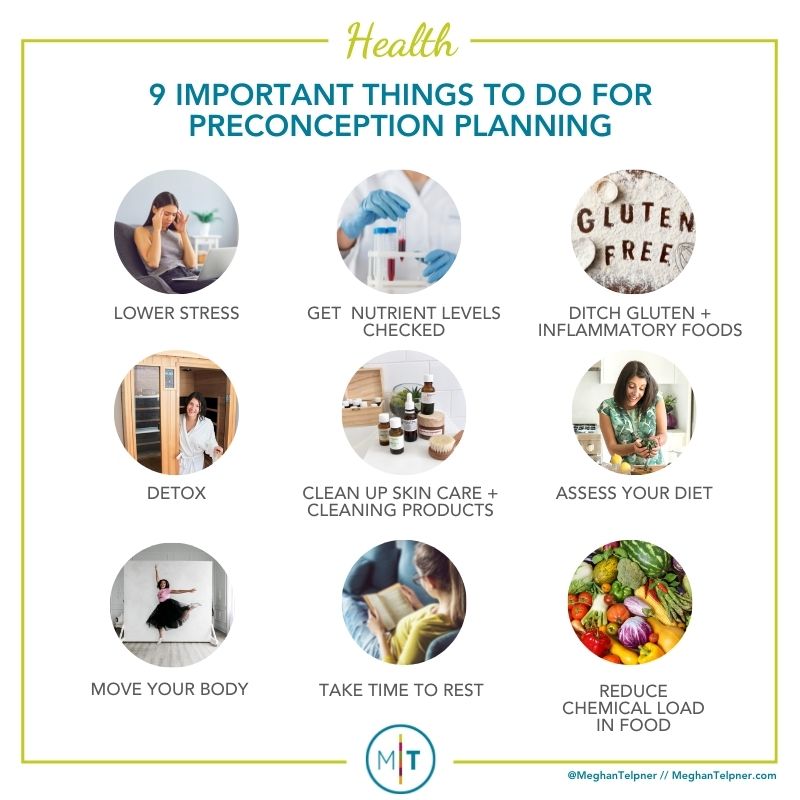
Photo by: Catherine Farquharson
Free Resource Library
Enjoy more than 40 downloadable guides, recipes, and resources.
















